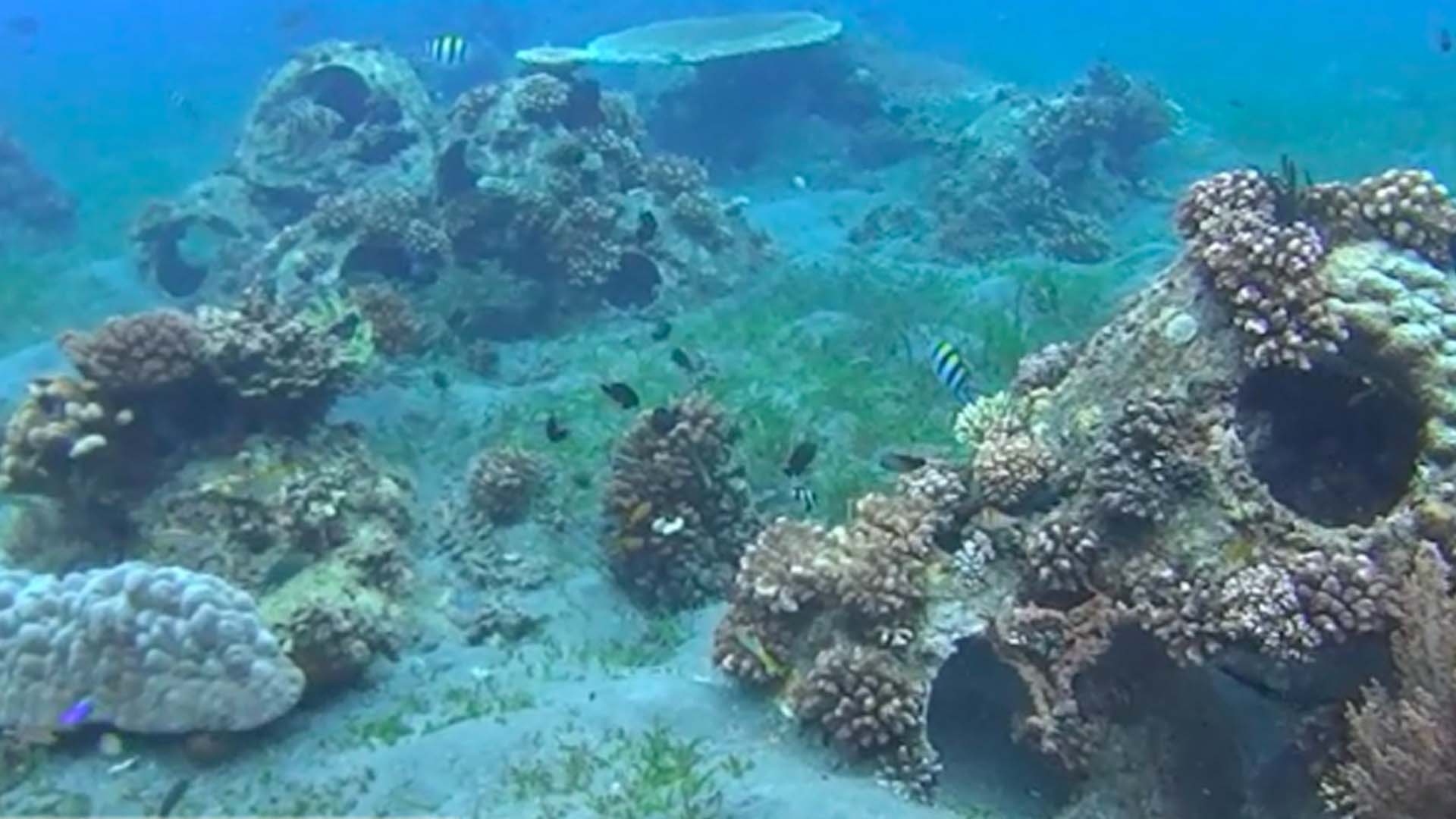A five-year artificial reef deployment project that enhances the marine biodiversity of this capital city’s four marine protected areas (MPAs) is a triple-win program that is expected to help address climate change, boost fisherfolks’ livelihood and food security.
Dubbed the Reef Dome Deployment project, which involves the setting up of cement molds on sandy bottoms, will act as man-made fish habitat while also hosting corals to grow and spread into reefs, said Gary Rosales of the environmental group, Kahugpungan para sa Kinabuhi ug Kinaiyahan, Inc. (Kinaiyahan), on Wednesday.
At least 200 reef domes will be placed during its official launch on Aug. 5 at the marine reserve in Barangay Bantayan, with a coastal clean-up at Silliman Beach to jumpstart the program.
Dr. Aileen Maypa, a marine biologist at the Silliman University-Institute of Environmental and Marine Sciences (SU-IEMS), formerly known as the SU Marine Laboratory, has provided the scientific and technical expertise and already conducted a pre-deployment dive to check the status of the artificial reef area.
The artificial reef deployment will continue on Aug. 6, 12, and 13.
Patterned after reef domes in Australia, the ones to be deployed here are made locally and smaller in size with some innovations.
Rosales said the move to deploy reef domes came after the city council approved last month the expansion of the Bantayan marine protected area from three to about seven hectares, which will benefit marine biodiversity and fish stocks of the Dumaguete coast.
Citing the success of the reef domes deployed in 2014, Rosales said his group decided to put in more.
“Some concrete reef domes deployed in 2014 which our group monitored over the years showed encouraging results, with corals already growing and fish teeming in their new habitat,” he said.
The Bantayan fisherfolks association had actually requested the expansion of the marine reserve, which was established about 12 years ago, after seeing its growth and thought about making it also a potential “eco-tourism” site in the near future, he added.
Under the law, fishing and other activities are prohibited inside a declared marine protected area, but fish spillover benefits the local community, which the Bantayan fisherfolk are now enjoying for personal consumption and as a source of income.
Rosales said one of their immediate concerns now is to have an active marine management council to oversee the protection and regulation of the Bantayan fish sanctuary.
The ordinance creating the MPA stipulates that a barangay fisherfolk association be created as well as a management council to ensure the project’s sustainability.
It is expected that more reef domes will be in place, and the planned eco-tourism will take off once the management council is formed.
In the meantime, Rosales’ group will do the regular monitoring of the marine reserve, alongside local fishermen.
After Bantayan, the Reef Dome project will be implemented in the other MPAs in this city, located in Barangays Looc, Mangnao and Banilad in the coming years.
Funding is from several partner institutions and individuals who have donated to ensure the success of the project.
The long-term project would also serve as a basis for marine research to determine if this type of artificial reef will improve fish habitat, encourage coral growth, enhance fisheries and local production, and act as coastal erosion protection, Rosales said.
The main groups behind the project are the Bayan-Dumaguete (the bank’s Corporate Social Responsibility arm), Kinaiyahan, Silliman University-Institute of Environmental and Marine Sciences (SU-IEMS), Friends of the Environment in Negros Oriental (FENOR), Dumaguete Cathedral Credit Cooperative, Inc., and the People’s Development Council.
Rosales said there are other participating groups and volunteer individuals who have also committed to participate in the project. (PNA)




